Kara Deringer is an international speaker, a best-selling author, a coach, an instructor at the University of Alberta, a consultant, and she has recently added restaurateur to that list! Her journey into entrepreneurship began when she took over Pink Gorilla Pizzeria in Edmonton last spring. And yes, that’s about exactly when our province stood still as the first wave of COVID-19 reared its ugly head.
“When I first took over, a lot of the restaurants in Edmonton were closed, because everyone was trying to figure out how to pivot, what AHS guidelines were, etc. I got my licenses as soon as I could so that we could at least stay open for takeout. We've been through openings, closures, outdoor dining, 50% indoor dining, and we've converted our parking lot in the back of the building to a patio. It really has been an adventure, but a good one.”
Despite the learning curve that comes with jumping into restaurant ownership, not to mention the challenges that arose with ever-changing restrictions, Kara says she’s always looked for ways to be creative and use those circumstances as opportunities to build her business up, rather than bring it down.
Taking a glass-half-full approach, every obstacle was a stepping stone for her to allow certain areas of her business to flourish amidst COVID-19 limitations. “I was always asking: What is the blessing in this? So for instance, the blessing in taking over at that time was that we were open for takeout, so we focused exclusively on making our takeout business extraordinary. And then, as we opened for 50% dine-in, we focused on our dine-in service,” eventually bringing in new menu items and happy hour specials as additional offerings, describes Kara.
But, it certainly wasn’t easy. Even with utmost perseverance, there were some struggles that brought particular difficulty for Kara, including accessing the funding she needed to support her business during the pandemic. She remembers searching and searching for grants and loans her business would be eligible for, repeatedly experiencing defeats such as cut-offs they had just shyly missed by two weeks, or a young entrepreneurs’ fund she had just missed by turning 40 two months earlier. She even tried contacting AWE, but at that time, all spots had been filled for the Regional Relief and Recovery Fund (RRRF).
After the RRRF applications had opened up again, and opportunity arose for Pink Gorilla to receive the funding so long as Kara completed the paperwork immediately— she didn’t hesitate to accept.
After being disappointed so many times, she felt nothing but sheer gratitude when the funding arrived. “When the loan money landed in our company bank account, I was really emotional because it felt like the first time support was out there for a new business owner like me. The business was being rewarded for the hard work that me and my team had put in - including the thousands of hours that I had volunteered to build Pink Gorilla. It was a deep sense of relief, like, we're gonna be okay.”
Over the pandemic, she’s made a strong effort to preserve her mental health, though finding some semblance of balance can certainly be a struggle in entrepreneurship. She admits that there are two sides to the coin.
The first, is that as an entrepreneur, it’s all in. “We knew that as a family going in—my kids recognized it early on in the process. Within the first few days of me taking over the restaurant, my son said to my mom (his grandma), “I think I'm really gonna love this restaurant. And, I think I'm really gonna hate it, too.’” Kara says that in many ways, finding “balance” is extremely difficult as a new business owner. Together, her family has made some necessary adjustments in order to navigate this venture into entrepreneurship.
The second, is that entrepreneurs do need to look for strategies for protecting their mental health. “I have used a business coach myself. I have accepted help from friends and family, so whereas I tend to try to be strong and independent, I've pushed myself to say yes when people offer any kind of help.” For her, making time to get out for walks and taking a quick power nap are some of her other strategies to maintain her mental health.
Through it all, her number one objective has been focusing on people: both customers and staff. With a happy team, her employees are willing to go the extra mile to help the business in such a difficult time. And from the beginning, she says, they’ve worked on providing an extraordinary customer experience, doing everything possible to make customers happy when they, too, are struggling.
We all have our own experiences impacting the lens through which we perceive the world and how we interact with it. But, Kara adds, it’s important to bring compassion to the table. “Behind a business are people. They're employees, they're managers, they're owners, and people just trying to do a good job and serve the public. If there's any message I'd like to deliver to the public, for the benefit of not only myself but all business owners, it's to encourage customers to have empathy for businesses.”
Kara is certainly no stranger to challenges, and like all of us, she’s had one heck of a year. With all that she’s learned, her advice to fellow entrepreneurs is, in one word: persistence.
“I do think persistence pays off. That being said, there's a qualifier there: not blind persistence. As entrepreneurs, we can get caught up in the passion of the business. And, at the end of the day, the balance sheet has to work.” She explains, “As much as it takes passion and persistence, I also think that we need to be realistic with our financials and our balance sheets.”






